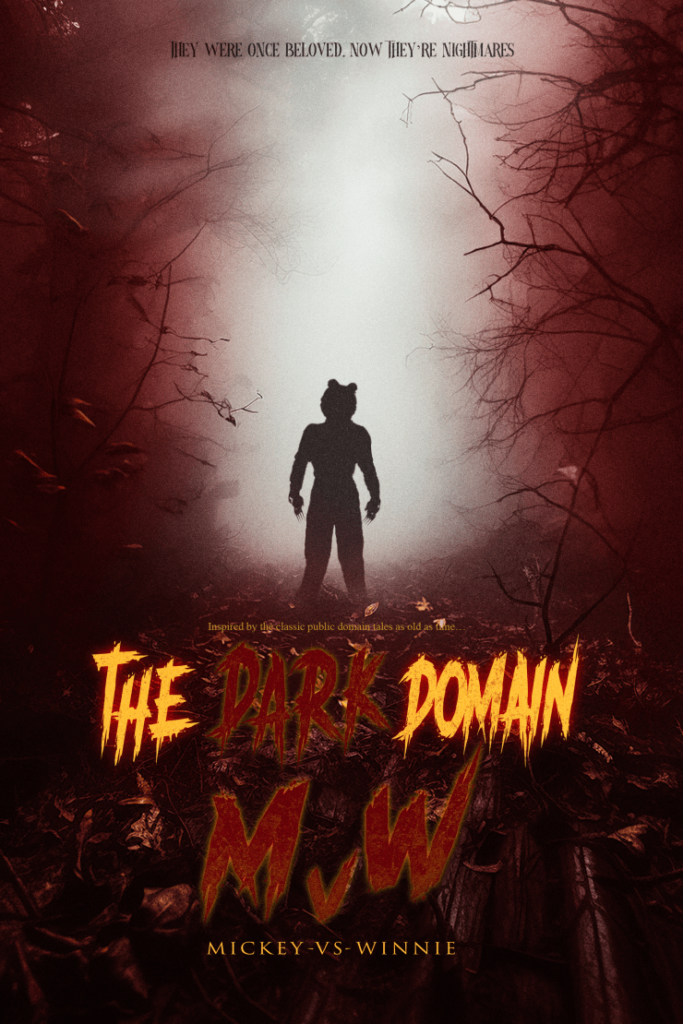Body horror feels like it is having a moment, and that’s not by accident. The last few years have turned bodily anxiety into an everyday experience. Between a pandemic that made contagion and vulnerability literal, the rapid integration of biotech and AI raising questions about the intrinsic value of humanity, and fights over reproductive rights and healthcare, the human body has become a highly contentious topic. Add in pervasive surveillance and a culture that monetizes image and identity, and you have fertile soil for films that center bodies as sites of violation, mutation, and resistance.
When you want that anxiety rendered into a gorgeous, disruptive cinematic experience, NEON has become one of the go-to labels. The company has built a reputation for scooping up daring auteur work from the festival circuit and fully throwing their support behind it, resulting in films like Anora, Parasite, Triangle of Sadness, and Anatomy of a Fall (among others) garnering international awards and acclaim. Never afraid to lean into genre films and filmmakers who take risks, their catalog contains some of the most boundary-pushing movies of the last decade, including some of the most innovative body horror films out there.
Just in time to help you curate that Halloween Horror Watchlist, this roundup features NEON’s most brutal body horror hits that channel these fears in a variety of effective ways. Some feature more overt and visceral body horror elements, while others take a quieter, more conceptual and insidious approach to the subgenre.
So pick your poison, and prepare for these NEON films to get under your skin, and keep your spooky season NEON and enter to win a Halloween bundle featuring tricks and treats for favorites like Longlegs, The Monkey, Together, and more.
Titane (2021)

Agathe Rousselle stars in Julia Ducournau’s Titane as the complicated, enigmatic Alexia. After surviving a car crash as a child, Alexia winds up forever carrying a titanium plate in her skull as a reminder of the incident. Now grown-up, Alexia has developed a raw, eroticized fascination with cars that often erupts into violence and leads to a series of truly unsettling bodily transfigurations. After one particularly brutal incident gone awry, she passes herself off as the long-missing son of a local Fire Department Captain (Vincent Lindon). The two soon form an unlikely bond that turns Ducournau’s story into an unexpected meditation on family, grief, and identity.
What makes Titane such a compelling body-horror film is how Ducournau blends tactile, often nauseating imagery with surprising and intimate emotional stakes. Here, metal and flesh collide in ways that are simultaneously fetishistic and horrifying, while the cinematography, sound, and Rousselle’s quietly magnetic performance drive the unique narrative. By stitching together this odd menagerie of seemingly disparate themes, the body horror bits of the movie transcend mere shock value. Instead, they add a fresh new voice to the film’s larger conversation about belonging and social dislocation. Bold and audacious, Titane made history when it won the Palme d’Or at Cannes in 2021, a historic win for horror and Ducournau as one of the very few women to have ever received the festival’s top prize.
Together (2025)

Together opens as a relationship drama about longtime couple Tim and Millie, played by real-life spouses Dave Franco and Alison Brie, who flee the city and move to the countryside in hopes of altering their seemingly doomed trajectory. With tensions already high between the couple, things quickly escalate further after they fall into a mysterious subterranean cave while out on a hike. Before too long, the couple realizes something from the cave has latched on to them, causing them to physically and psychologically cling to one another in the most intimate of ways.
Part of what makes the movie so engaging is how writer/director Michael Shanks balances genuine emotional tension and cringe relationship beats with detailed, gooey practical effects. Because of this, the film’s gross-out set pieces always feel like logical escalations of the couple’s codependency rather than just some random scares. As Bloody Disgusting’s own Meagan Navarro put it in her review, Together delivers “a unique blend of awkward romantic dramedy and cosmic body horror” that produces “laughing and screaming in equal measure.” In short, Together uses body horror to literalize the messy and sticky idea of long-term love.
Possessor (2020)

Brandon Cronenberg picked up the family body horror legacy and has never stopped running with it, treating flesh and technology as inseparable vocabularies. His films inherit his dad, David Cronenberg’s, clinical curiosity about how bodies change under social and technological pressure while pushing that inquiry into sleeker, colder territory. While Cronenberg’s more recent film, Infinity Pool, definitely plays in this same sandbox, Possessor feels more like a deliberate refinement of that familial legacy and curiosity.
In Possessor, Tasya Vos (Andrea Riseborough) is a corporate assassin who uses chips implanted in the brain to occupy other people’s bodies and carry out murders. When an assignment goes wrong, the boundaries between host and intruder begin to crumble. Thanks in part to some brutal practical effects, Cronenberg makes the loss of control feel physically invasive, so the terror is never merely conceptual. Body horror with a high-concept sci-fi twist, Possessor is a movie that is as visceral as it is intellectually rigorous.
Immaculate (2024)

While one might not immediately think of Immaculate as a body horror film, there are certainly horrifying elements of the film that have to do with the human body and one’s own agency over it. In the movie, Sydney Sweeney plays Sister Cecilia, a young American nun who excitedly arrives at an Italian convent only to find herself the target of a fanatical cult that insists she is carrying a miraculous pregnancy. As Cecilia’s body becomes scrutinized, fawned over, medicated, and ultimately weaponized by those in power, what started as a creeping suspicion and eerie ritual soon results in Cecilia feeling violated, stripped of all choice and agency.
Where Immaculate works best is in how it sneaks up on you as body horror. The gore and Giallo-inflected visuals are there, but the movie’s real bite comes from the slow erosion of Cecilia’s bodily autonomy and the institutional mechanisms that allow that violation to happen. Framing the film as a stealth body horror piece lets it do double duty as an entertaining, bloody, religious-horror affair, while also staging a dark, topical parable about who gets to own a body and the sometimes torturous road to reclaiming one’s power.
Crimes of the Future (2022)

Crimes of the Future follows Saul Tenser (Viggo Mortensen), a performance artist who turns his body into the site of staged surgery, allowing new organs to be removed and displayed as art. Working with his partner Caprice (Léa Seydoux), Tenser’s exhibitions blur the line between aesthetic spectacle and intimate violation. At the same time, a subversive, counter-cultural movement treats biological mutation as a form of political protest.
This is quintessential David Cronenberg territory. For decades, he has explored the ways in which technology, desire, and pathology reshape identity in films. From The Fly, to Videodrome, to Scanners, Crimes of the Future, and more, the recurring fascination with the complexity of the human body is presented in new, boundary-pushing ways. Here, Cronenberg revisits surgical spectacle and the eroticized body not as a stunt, but as a philosophical device, asking what it ultimately means to inhabit a mutable body in the public space.
Cuckoo (2024)

Tilman Singer’s Cuckoo defies easy categorization. It is beautiful, suffocating, and weirdly bodily. It is also a movie that unravels what it means to grieve and feel unwanted while fully embracing being weird as all hell. In the movie, Gretchen (Hunter Schafer), still mourning the loss of her mom, relocates with her father, stepmom, and stepsister Alma to an isolated German resort run by the enigmatic Herr König (Dan Stevens). The resort seems pristine at first glance, but soon reveals a myriad of unsettling, shocking secrets and scientific experiments. Behind the polished facade, König runs cold, quasi-scientific programs that turn kids into implanted cargo and human hosts into involuntary parents.
Compared with some of the other films on this list, Cuckoo reveals its body horror in a more restrained and sly way. Even though Gretchen absolutely goes through it and has the bruises and injuries to prove it, her character becomes almost more of a witness to the film’s body horror elements than a victim herself. Like carefully placed breadcrumbs, vomiting guests, Alma’s inexplicable seizures, missing gaps of time, and sonic screeches permeating the property, build to a climax that is as odd as it is delightful. Although a little more Giallo-infused than grotesque in typical body horror fashion, Cuckoo is unquestionably playing with aspects of body horror, just in its own wonderfully weird way.
The post Fleshy Frights: NEON’s Most Brutal Body Horror Hits appeared first on Bloody Disgusting!.


